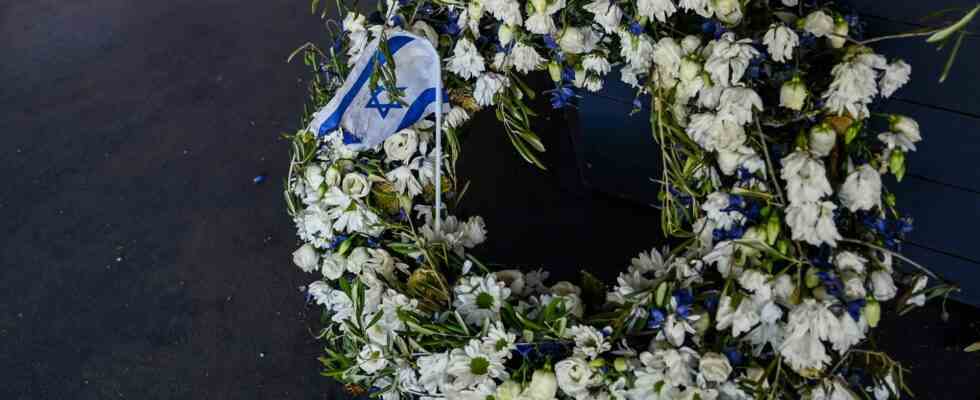Status: 01/25/2023 11:28 am
Relatives of the victims of the 1972 Olympic assassination have long struggled for recognition and compensation – now the historical processing follows. A commission should be set up for this purpose. Many details are still unclear.
The processing of the 1972 Olympic assassination is under way: In the summer of last year, immediately before the 50th anniversary of the attack on the Olympic Games in Munich, there was initially no sign of an agreement. But then there was a commemoration at which Federal President Frank-Walter Steinmeier acknowledged mistakes made by the German authorities and German responsibility.
Juliane Seifert, State Secretary in the Federal Ministry of the Interior, traveled to Tel Aviv to discuss with the families of the relatives what to do next. “In August and September we were able to agree with the families that there would be other recognition services,” she says. Now, and that is the reason for the visit to Israel, they have a third task: processing.
Commission of historians to work up assassination
A commission of German and Israeli historians is to be set up for this purpose. This point was particularly important to the relatives, in addition to the public recognition of German responsibility and further compensation, says Ankie Spitzer. She is the widow of the then murdered Israeli fencing trainer Andre Spitzer.
“Our third demand, and I think it was the most important one for us, is to open all archives,” she explains. This was also approved by the federal government. “And now the families will finally know what happened in Munich. Because we think there is still a lot of information that we don’t know. We fought for 50 years. The fight is over.” They are very pleased that the federal government has kept its promise to open the archives and set up a commission.
On September 5, 1972, Palestinian terrorists killed two athletes from the Israeli team and took nine others hostage. In a failed rescue attempt by German forces at Fürstenfeldbruck Airport, all nine hostages, one police officer and five of eight terrorists were killed. The surviving hostage-takers were released shortly after the hijacking of a Lufthansa plane by a Palestinian commando.
Munich, 1972: An armed police officer in tracksuit secures the block in the Olympic Village where terrorists are holding Israeli hostages.
Image: dpa
“After 50 years of fighting we have come to rest”
Many details, especially the attempted liberation action, are still unclear. Ilana Romano, the wife of a murdered weightlifter, hopes for the truth. “After 50 years of fighting, we have now come to rest. Now that the fighting is over, the deeds remain,” she says.
She is convinced that today’s Germany no longer corresponds to that of the past and will ensure a real historical reappraisal. “We have received an apology, a memorial and compensation, what remains is historical reappraisal in the hope that the Commission will reveal the full historical truth to the whole world.”
The German-Israeli historical commission is scheduled to start work in the spring – initially for three years. The Bundestag has already approved the funds for this. State Secretary Juliane Seifert said that the federal government, but also the families of the relatives, should closely monitor the work of the commission.
Processing of the Munich Olympic assassination attempt – relatives express their satisfaction
Jan-Christoph Kitzler, ARD Tel Aviv, 25.1.2023 09:46 a.m

